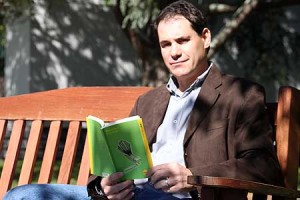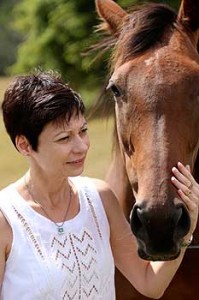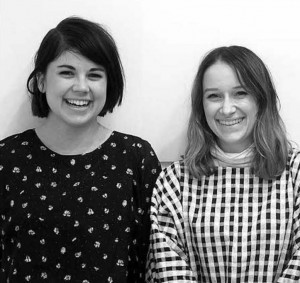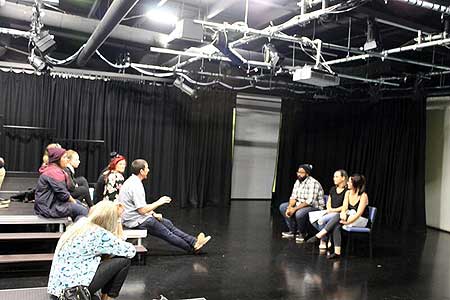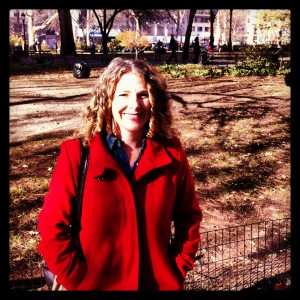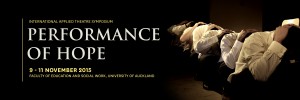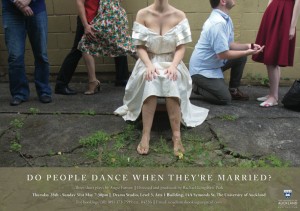Deepest congrats to Bryan Walpert and the newest Massey PhD in Creative Writing, Johanna Emeney. They are the only NZ Poets to make the long list for this international poetry prize!
Category Archives: News
Massey 3MT Competition
School of English and Media Studies PhD student Sara McBride has won the Wellington leg of the 3 minute thesis competition. Sara is co-supervised by English & Media Studies with the Joint Centre for Disaster Research and her research is on cracking the puzzle of how we can better prepare people for disaster, particularly earthquakes. She’ll be off to the finals in August. Congratulations Sara!
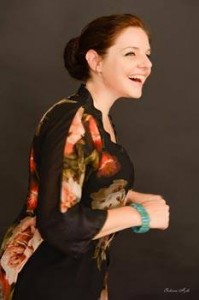 More information on the 3MT competition can be found on the Massey University website.
More information on the 3MT competition can be found on the Massey University website.
Massey Graduate’s First Poetry Collection Reviewed
A great review of Wellington Massey Expressive Arts graduate, Annabel Hawkins’ first collection of poetry, This Must be the Place:
‘The move from a blog, where the posts were an amalgam of structured poems, as well as open-form entries with no real structure, was a challenge. Here, in This Must be the Place, these have been collected, worked on, revised, and her words are bound together with feelings and memories. The form is stricter, but the intentions and honesty remain in the collection. Hawkins avoids high-brow language and form, aiming instead for accessibility. Her language oscillates, as if working to a pattern, between poeticism surrounding time and abstract emotions, and specific language of both time and place—with references to polar fleeces, durries, skateboards, ripped jeans, Briscoes, all carving out an eternal moment in time.’
If you’d like to read more, click http://bit.ly/1Lm1nCx.
Drama and Dementia
Massey Albany’s Creativity in the Community students continue to receive well-deserved news coverage of their work with the residents of a local dementia care facility.
Click here to see the segment on last week’s TV3’s “Newsworthy” programme.

Students turn creative lens on dementia
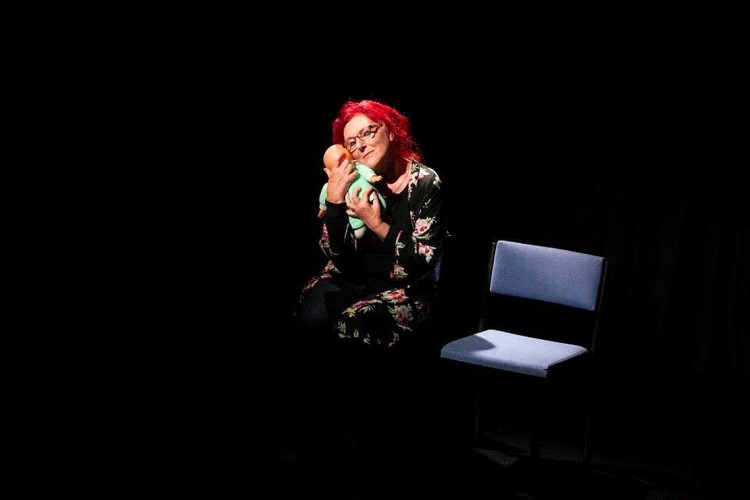
Sue Wilson plays the character Betty, who re-establishes a connection with her ‘memory’ (photo/Eilidh Penman)
Massey University theatre and media students have been using their creative talents for social good by exploring new ways to communicate with people who have dementia, as well as helping others to better understand the condition.
Students at Massey’s Auckland campus have developed short films, music videos and a theatre performance in partnership with a nearby residential care facility, Aria Gardens, in Albany. The works were created as part of a ground-breaking new paper led by applied theatre specialist Dr Rand Hazou.
One of the four groups on the course explored the use of doll therapy for residents experiencing ‘sun-downing’ – the mid to late-afternoon period when some dementia sufferers feel agitated and confused. Another used TimeSlips – an imaginative storytelling technique that doesn’t rely on memory, and is suited to engaging with some of the residents who have dementia.
Dr Hazou says the Creativity in the Community paper – offered through the School of English and Media Studies to Bachelor of Arts and Bachelor of Communications students – allows students to come up with creative ways to connect with a specific community setting and explore artistic methods to communicate issues relevant to that community.
“By partnering with Aria Gardens, we’ve had a unique opportunity to engage with some of the issues surrounding ageing and dementia, and find creative interventions that challenge negative stereotypes within the wider community,” Dr Hazou says.
“After giving students some introductory information on dementia and some coaching on communication techniques, we began visiting Aria Gardens to meet with residents and staff and build up relationships. The idea was that together we could work towards delivering creative interventions that explore issues of positive ageing and dementia.”
Over the last 10 weeks students visited Aria Gardens and designed their creative projects as a result of their interactions with residents. They also worked with Annabel Grant, a clinical educator within Massey’s Institute of Education, to understand the specific communications challenges that the elderly and those with dementia might experience.
Last week the students presented their projects at the Theatre Lab on the Auckland campus.
“We’re also planning on presenting our projects back to the residents and staff at Aria Gardens and inviting feedback and discussion,” Dr Rand says.
Jon Amesbury, the manager of Aria Gardens, says his 133-bed facility seeks innovative and creative ways to empower residents as part of its philosophy. He says the project was “hugely positive.”
“The residents who took part felt really empowered because they were part of creative projects that recognised their lives and experiences, which increases their self-worth.”
Mr Amesbury is entering the project in the national Excellence in Care Awards 2015. He says the project and partnership with Massey University is unique. He would like to see similar creative projects and partnerships developed more widely as the elderly population rapidly increases and issues such as social isolation, grief, sexuality, depression and anxiety they experience need to be addressed and understood.
Dr Hazou says the group creative projects also allow students to develop important teamwork and communications skills that help them to become “work ready and world ready”.
He says the aim of the paper, as well as other new courses being introduced at Massey, is to develop the students’ capacities as adaptive, engaged and responsible citizens. “We want to produce students who can use creative skills to engage with problems they see around them.”
This aim is also being mirrored in Massey’s redesigned Bachelor of Arts, as well as the introduction of the Major in Creative Writing and a Minor in Theatre Studies from next year.
Anna Beaton, a Bachelor of Communications student enrolled in the paper, says the project helped her learn to navigate “confronting” situations with confidence. Her project was a short film aimed to create awareness of dementia using sketching, watercolours, music, and voice-over narration.
Student projects were; ‘Sketchy Memories’ (a three-minute film depicting a narrative fiction based on dementia); ‘Pieces of My Mind’ (a music video on dementia targeting a wide audience); ‘One Moment in Time’ (theatre performance to demonstrate the benefits of doll therapy during the mid to late afternoon period of agitation and confusion in those living with dementia, referred to as ‘sundowning’); and ‘Youthless’ (a short film influenced by elderly residents and their experiences and perspectives on communicative difficulties and memory loss).
Competition Winner – Janet Newman
Master of Creative Writing student, Janet Newman, has won first place in the Page & Blackmore Short Story Competition, run by the Top of the South branch of the New Zealand Society of Authors. Judge Ted Dawe, commended Janet’s short story “Like Light” for its seamless transition of narration and quality of writing. Congratulations, Janet!
NUTS NZ Issue #6
Editorial
Welcome to the sixth edition of NUTS NZ – the Newsletter for University Theatre Studies New Zealand. The purpose of the newsletter is to help us communicate more effectively as a community of scholars interested in Theatre and Performance. We have an interesting selection of stories and news items for you in this mid-year issue of of the newsletter for 2015. In this issue we have included the first of what we hope will be a series of ‘correspondences’ from Dr. Sharon Mazer who will be discussing issues related to the Performance-Based Research Fund (PBRF) exercise, and the challenges we face as a community in how performance research is evaluated. Sharon raises the possibility of beginning a conversation about PBRF at the ADSA annual conference which is just around the corner. This year’s Australasian Association for Theatre, Drama and Performance Studies (ADSA) conference ‘Revisiting The Player’s Passion: the Science(s) of Acting in 2015′ is being hosted by the University of Sydney. We understand there will be good representation by Kiwi scholars at this event. The new book ‘Embodying Transformation:Transcultural Performance‘ (Monash University Press, 2015) will be launched at the conference. The book features a substantial contribution from scholars based in Aotearoa/NZ, including Hilary Halba, James McKinnon, George Parker, Bronwyn Tweddle, and Rand Hazou.
We are conscious that this issue of NUTS is very Auckland focused. We are sure that other programmes around the country are producing wonderfully exciting theatre projects and research that we should know about. So please send us information on any upcoming events or initiatives that you think our wider theatre and academic community should be informed about. Perhaps you could nominate someone within your programmes to be a NUTS NZ media officer? Please refer to the important dates below. We plan to circulate our seventh issue in mid-August 2015, and we will need items of news by 31st of July. As always, submissions should be sent to the NUTS NZ editor Jane Marshall: j.g.marshall@massey.ac.nz
| Newsletter Issue | Information Required by | Date of Circulation |
| Issue 7 | 31 July 2015 | 14 August 2015 |
| Issue 8 | 30 October 2015 | 13 November 2015 |
Kind regards,
NUTS NZ editors: Jane Marshall and Rand Hazou.
PBRF Corespondent’s Report
This is a critical year in the lead-up to PBRF 2018. Now is the time to be discussing strategies for meeting the challenges ahead within our own institutions and with each other more widely. We need to be thinking creatively both about the way our work is produced and about how it is to be represented in our portfolios. I expect PBRF will be central to our regular November meeting (hosted by Auckland University this year). In addition, if there is sufficient interest, perhaps we can organise an earlier conversation – at ADSA, for example, and at other regional gatherings (Auckland, anyone?).
In fact, we have less than three years to produce the work – performances and publications – that will be pulled into portfolios, counted and evaluated. Manuscripts of articles, book chapters, books and play texts must be in process by the end of the year to ensure they’re in print by the end of 2017. Even e-journals need a fair bit of lead time. And research-oriented performances will surely need to be in development, in order to elicit the sorts of critical, international attention that can lift the apparent value of the work in the eyes of the assessors.
There have been some significant changes to PBRF for the next round: an attempt, it seems, to emphasise quality over quantity, to place a higher value on reception of research (ie ‘impact’) in the wider community and to simplify the work of panellists somewhat. The number of ‘Nominated Research Outputs’ remains four, but the number of ‘Other Research Outputs’ has been reduced to twelve. The ‘Peer Esteem’ and ‘Contribution to the Research Environment’ categories have been merged into a single ‘Research Contributions’ category, with a maximum of fifteen examples allowed. There will be limits to the percentage of staff at any one institution who can claim ‘special circumstances’, and staff will no longer be able to request cross-referrals between panels.
You may also be aware of a number of consultations circulating. The proposal to collapse Creative and Performing Arts output categories into a single ‘Original Creative Work’ is especially problematic, I think, for those of us working in theatre and performance research. The suggestion to reduce the designations for conference contributions to just (1) paper published in proceedings, and (2) other (including full papers presented orally) is also troubling from my perspective. Your institutions’ PBRF coordinators can provide copies of the relevant documents and involve you in the discussion, if you’re at all interested. Truth is, they’d probably be delighted to be asked.
My new role at AUT directly involves supporting staff and student research in theatre and performance, PBRF included. While there is an aspect of competition between institutions, I remain committed to lifting the profile of our disciplines in this national exercise. Feel free to contact me: smazer@aut.ac.nz.
Best to you all
Sharon
Dr Sharon Mazer Associate Professor of Theatre & Performance Studies @ AUT Convenor, NZ Universities Committee for Theatre/Performance ResearchNUTS PEOPLE
In each edition of NUTS NZ we profile an academic and a postgraduate student to show case “our people” and their current research/interests. It is our pleasure to be profiling Lecturer Emma Willis and postgraduate student James Wenley from the University of Auckland. NUTS NZ asked each of them to answer the following questions:
- What is your research about?
- What theatre/performances have you seen recently?
- What have you been reading lately?
Dr Emma Willis
Research: Ask me anything except what I’m researching right now! The monograph that came from my PhD thesis, Theatricality, Dark Tourism and Ethical Spectatorship, was published last year so I feel I’m at the beginning of a new phase of research. I have some formative ideas that continue to play around with the concept spatial dramaturgies, this time beginning with the Humanist folly gardens of the 16th century, such as Sacro Bosco, as a point of departure. I’ve also been talking to Dorita Hannah about an edited collection on the history of experimental performance in New Zealand so that is on the horizon. As a prelude I am writing a short history of BATS’ STAB commission to coincide with its 20th year in 2015. On the creative side, I have returned to some playwriting this year – writing shorts scenes. I’m also continuing to work with Malia Johnston and we have a work in progress called Red, which we started making last year and which hopefully we’ll get to spend some more time on in the coming months. Keeping my creative research practice active and engaged is a focus for me this year.
Theatre: I’m teaching a 700 level playwriting class this year and I am really excited by the theatre that I see my students creating every week. I’m very much interested in the work that words do in the theatre (especially having been quite involved in dance for the last few years) and I am always so struck by the range of responses to the weekly writing tasks that the students undertake. There are eleven completely distinctive voices in the class and their work has inspired me to get back to playwriting myself. I really love to see work-in-progress. There’s a freedom at that preliminary stage of the process that is so exciting. Some of the performances I’ve seen that I’ve enjoyed the most over the last year have been showings. I also love the generosity of the audience in these sorts of contexts. I wish we could maintain the spirit of artistic freedom and audience generosity when the whole ‘business’ of theatre comes into play.
Reading: For the playwriting class I’ve been reading a lot of plays. Highlights have been David Greig’s The Events, which the SiLO is producing later in the year. A very theatrically adventurous play about how we attempt to decipher seemingly indecipherable actions. I can’t wait to see it. I’ve also been delving into the work of Suzan Lori-Parks, who we don’t much read or teach here. I’ve put one of her plays on the curriculum so I am intrigued to see what students will make of her work. I’ve recently joined the Performance Paradigm team as book reviews editor. Their most recent issue is themed around resistance and there is a particularly fantastic essay by Paul Rae that thinks through the relationship between theatre and resistance. Essential reading for anyone interested in the topic: http://www.performanceparadigm.net/index.php/journal/article/view/146
James Wenley
Research: The Topic of my Doctoral Thesis is “New Zealand Theatre’s Overseas Experience”. I’m interested in the productions that have toured from this country overseas, examples of international companies producing New Zealand plays, and how cultural and national identity within New Zealand originated theatre works are represented and received in an international context. I’ve just done an archival research trip to the Alexander Turnball, Playmarket, Victoria’s J.C. Beaglehole Room, and Otago’s Hocken Library and am working through lots of material on playwrights like Bruce Mason, Robert Lord, Roger Hall, and productions like Waiora and Downstage’s Hedda Gabbler. There are lot of current initiatives to produce NZ theatre overseas, like the 2014 NZ at Edinburgh season, so this is an ideal time to be researching this topic and later this year I have the opportunity to run away from the zombies in Generation of Z in London. I’m playing with ideas of regionalism, cultural specificity, universalism, global hybridity as well as the economic and institutional factors behind the production of work overseas, and what it all means for theatremakers in this part of the world.
Theatre: I’m the editor of Auckland Theatre blog TheatreScenes.co.nz and a theatre critic for Metro Magazine so there are not many Auckland productions that escape me. I think Rochelle Bright’s Daffodils is brilliant, and was pleased to catch its return Auckland season at Q. It maximises nostalgia through its remixes of the great kiwi songbook (Anchor Me, Language etc) performed exquisitely by Todd Emmerson and Coleen Davis. It’s a boy meets girl story which doesn’t end well, and for me has something quite important to say about masculinity in this country. Most recently I was very energised by Emily Perkins’ contemporary adaptation of A Doll’s House which throws a grenade at social, gender, economic and ethical complacency. “Just what this country needs right now” I wrote in my review (http://www.metromag.co.nz/culture/stage/a-dolls-house-review/).
Reading: I’ve recently gone on a binge of texts dealing with Interculturalism spiralling out from Ric Knowles short but sharp theatre & interculturalism. I’ve also been reading a lot about performance that deals with medical issues for a course I’m teaching for the University of Auckland’s Medical Humanities. Arthur W. Frank’s The Wounded Storyteller is very provocative. Non-theatre related I’ve been dipping in and out of Sapiens: A Brief History of Humankind by Yuval Harari which is quite a fascinating frame for thinking about our history. I love these sorts of big picture exercises that try to take account of where we are and how we got there.
Conferences/Seminars
Call for papers – Symposium Announcement
International Applied Theatre Symposium: The Performance of Hope
- November 9th, 10th & 11th 2015
- Faculty of Education and Social Work, University of Auckland, New Zealand
- Deadline for abstract submissions: Monday 11th May, 2015
The Critical Research Unit in Applied Theatre (CRUAT) at the University of Auckland sends a call out for you to join us at the International Applied Theatre Symposium: The Performance of Hope, November 9th – 11th 2015. The symposium celebrates and questions applied theatre’s potential to be a liberating and humanising process. The symposium includes confirmed keynotes from Professor Peter McLaren, Professor Peter Freebody, Associate Professor Penny Bundy and Dr Emma Willis, applied theatre performances, practical workshops and academic papers. As in previous symposia there will be a separate strand for postgraduate students to meet and work together (9th November). The last symposium in 2013 brought together 100 participants from around the world and nearly 30 postgraduate students from the Eastern seaboard of Australia and throughout New Zealand.
Symposium Themes
Hope, like freedom is an ontological need. Hope is the desire to dream, the desire to change, the desire to improve human existence. As Freire says, hopelessness is “but hope that has lost its bearings”. This fourth international symposium hosted by CRUAT continues our interrogation of the links between applied theatre and critical hope. We situate this debate within our understanding of the potential for applied theatre to create spaces for those regularly denied full citizenship. When applied theatre provides opportunities to participate in thinking and talking about the world to those denied these rights, it is a force against the anti-democratic practices of global capitalism; it is a performance of hope and resistance. This symposium celebrates theatre’s potential to realise hope and possibility in communities of despair, disenfranchisement and disadvantage. This symposium will bring together artists and professionals working in education, health, community and youth work, inviting them to share their research and practice.
Proposals are sought for:
- Workshops (60 or 120 mins)
- Research paper presentations (20 mins)
- Performances (60 or 120 mins)
- Symposia/roundtable discussions (60 mins)
Information for contributors:
- Abstracts should be no more than 300 words and should address the conference themes
- Proposals should be sent to m.mullen@auckland.ac.nz
- Please include a biography of no more than 150 words that will be suitable for inclusion in the conference programme
- This is a peer-reviewed conference
- Closing date for submissions: Monday 11th May 2015
- Conference website:http://www.education.auckland.ac.nz/en/about/events/events-2015/11/the-performance-of-hope.html
CRUAT (Critical Research Unit in Applied Theatre), University of Auckland
May Events 2015
CRUAT welcomes Curt L. Tofteland, Founder and Producing Director of Shakespeare behind Bars, USA, who will give public presentations in Auckland. Christchurch and Wellington. Full details can be found here: http://www.creativethinkingproject.org/curt-tofteland-fellow/#curt-events
These talks are accompanied by one-day symposia in each location that will showcase projects happening in New Zealand prisons and discuss issues around rehabilitation and reintegration with the arts and academic community. For more information contact: Associate Professor Peter O’Connor: p.oconnor@auckland.ac.nz
These events are being hosted with Arts Access Aotearoa with the University of Auckland Creative Thinking Project.
Creativity: The Possibilities of Hope – a Postgraduate Seminar
Meet with the Creative Thinking Project’s fifth Creative Fellow and fellow postgraduate students in theatre, applied theatre and related disciplines. Curt L. Tofteland is the founder of Shakespeare Behind Bars, an internationally acclaimed personal transformation program which combines art, theatre, and the works of William Shakespeare to create Restorative Circles of Reconciliation in prisons. Shakespeare Behind Bars, is the subject of Philomath Films award-winning documentary which began its life at the 2005 Sundance Film Festival and traveled to more than forty film festivals around the world winning eleven awards.
- Date: 18 May 2015
- Venue: Faculty of Education, The University of Auckland.
- Time: 2-3.30 p.m.
Please email: p.oconnor@auckland.ac.nz
Creativity in Corrections Symposium, Tuesday 19 May, 9am–4pm, University of Auckland
The visit of Curt L. Tofteland, the University of Auckland’s fifth Creative Fellow, provides an opportunity for Arts in Corrections practitioners, Corrections staff and the wider community to gather and talk about the role of creativity in making a difference in people’s lives. Curt L. Tofteland is the founder of Shakespeare Behind Bars, an internationally acclaimed personal transformation programme that combines art, theatre and the works of William Shakespeare to create Restorative Circles of Reconciliation in prisons. Shakespeare Behind Bars is the subject of an award-winning documentary that began its life at the 2005 Sundance Film Festival, has travelled to more than forty film festivals around the world and won eleven awards. The symposium also provides an opportunity to work practically with Curt. The symposium will also include a discussion panel featuring:
- Curt Tofteland, University of Auckland’s Creative Fellow
- Penelope Glass, prison artist, Santiago, Chile
- Associate Professor Peter O’Connor, University of Auckland
- Jacqui Moyes, Arts in Corrections Advisor, Arts Access Aotearoa
November 2015 Events
CRUAT International Symposium – Performance of hope: 9th-11th November
The Critical Research Unit in Applied Theatre (CRUAT) at the University of Auckland sends a call out for you to join us at our fourth international symposium. The 2015 symposium celebrates and questions applied theatre’s potential to be a liberating and humanising process. The symposium includes confirmed keynotes from Professor Peter McLaren, Professor Peter Freebody, Associate Professor Penny Bundy and Dr Emma Willis, applied theatre performances, practical workshops and academic papers. As in previous symposia there will be a separate strand for postgraduate students to meet and work together (9th November). The last symposium in 2013 brought together 100 participants from around the world and nearly 30 postgraduate students from the Eastern seaboard of Australia and throughout New Zealand.
Deadline for abstract submissions: Monday 25th of May, 2015
For more information and full call for papers see http://www.education.auckland.ac.nz/en/about/events/events-2015/11/the-performance-of-hope.html or contact Dr. Molly Mullen: m.mullen@auckland.ac.nz
Performances
Do People Dance When They’re Married?
Three short award winning plays by Angie Farrow and directed by Rachael Longshaw-Park, including ‘Leo Rising’, ‘Tango Partner’ and ‘Lifetime’. With a distinctive theatrical style that combines absurdity with lyricism, these short works each explore the themes of intimate relationships and lives left un-lived.
28th of May – 31 of May in the Drama Studio, Arts 1 (Building 206), University of Auckland, Symonds Street.
- Adult $15
- Concession $10
- Student $10.
Hippocrates Prize Commendation for Massey PhD Candidate
Congratulations go to Johanna Emeney, a PhD candidate in the School, who has had a poem selected as “commended” in the prestigious UK-based Hippocrates Prize for Poetry and Medicine. The poem, “And then it spreads“, is from her creative/critical thesis, which is focused on medical poetry. Further details can be found at: http://hippocrates-poetry.org/hippocrates-prize/2015-hippocrates-prize-for/.
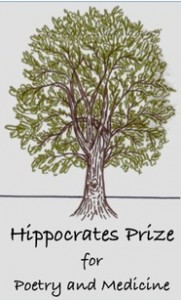
Congratulations, Bryan!
Bryan Walpert’s recently launched book, Native Bird, is currently sitting at #9 on the New Zealand Bestseller list. Check it out here:
Marvelly’s Villainesse media site launching soon
 She’s been described as a national treasure, has toured internationally with opera star Paul Potts, and her pop music has sped up the charts. Now gold-album-selling singer/songwriter and EMS graduate Lizzie Marvelly is calling all young creative writers and artists to be part of her ground-breaking new feminist media project, Villainesse.
She’s been described as a national treasure, has toured internationally with opera star Paul Potts, and her pop music has sped up the charts. Now gold-album-selling singer/songwriter and EMS graduate Lizzie Marvelly is calling all young creative writers and artists to be part of her ground-breaking new feminist media project, Villainesse.
Marvelly, who has credited her songwriting creativity to her English studies, will graduate in April with a Massey BA in English and Psychology. Villainesse is her next big challenge. She says “the basic idea of Villainesse is to create smart, no-filter media for young women aged 16-25”.
She hopes to build a global group of student writers whose work will be published on Villainesse, as well as branching out to include students’ videos, podcasts and other media. Villainesse will also feature the writing of well-known young women columnists and Marvelly is planning to create connections between student writers and established journalists/writers in the field.
She is looking for “smart, articulate, socially conscious students” who would be interested in writing about young women’s issues and perspectives and connecting with like-minded women around the world – and if that sounds like you, now is the time to get your creative work in to Villainesse for the launch in May.
“It’s very much at the start-up stage at the moment and the site won’t launch until May, but I’m putting the call out to writers and collecting articles now,” Marvelly said.
“I’m looking for a mixture of hard news, features, investigative features, opinion pieces, creative non-fiction, and hybrids of those forms. The idea is for writers to write about issues that they’re passionate about (that would be relevant to young women aged 16-25) from their own unique perspectives whilst upholding a code of ethics and aiming for sound and balanced journalism”.
Marvelly, herself just 25 years old, hopes the site “will grow to become a space to foster debate, creativity and, well, girl power”. She says “For the project to be truly authentic to women in this age group it’s important to have young writers writing for their peers, with some older inspirational figures adding to the dialogue.”
Click through to the Villainesse website below to register your interest, see their page on Facebook, or contact the Villainesse team directly at editor@villainesse.com
Links:
http://www.facebook.com/TheVillainesse
Previous stories about Marvelly and Massey
